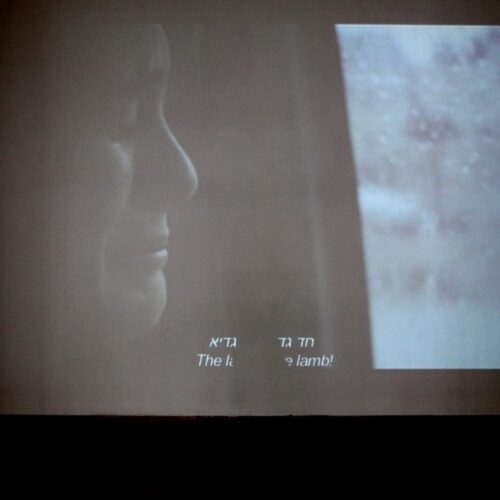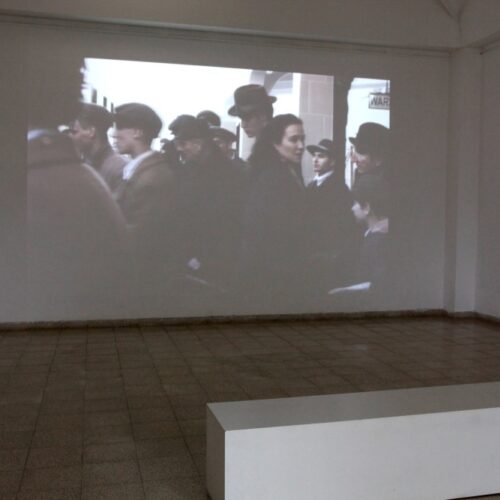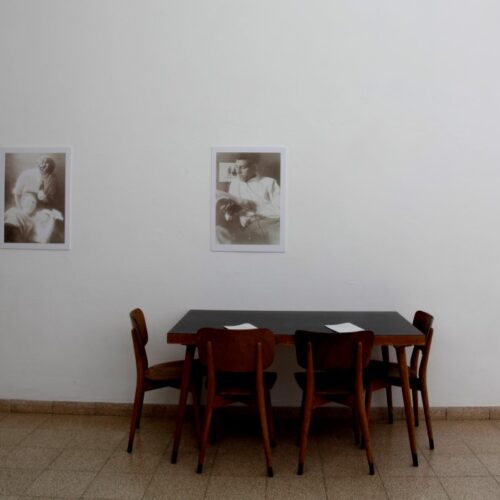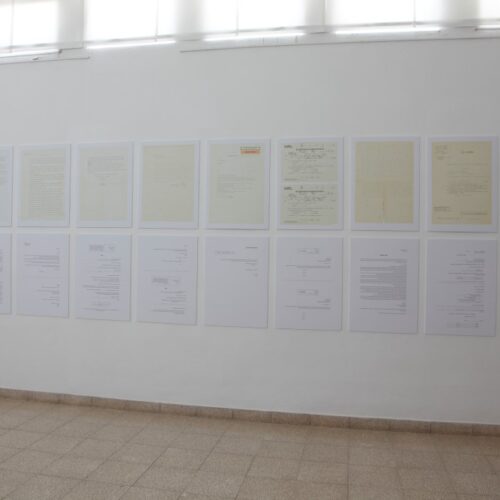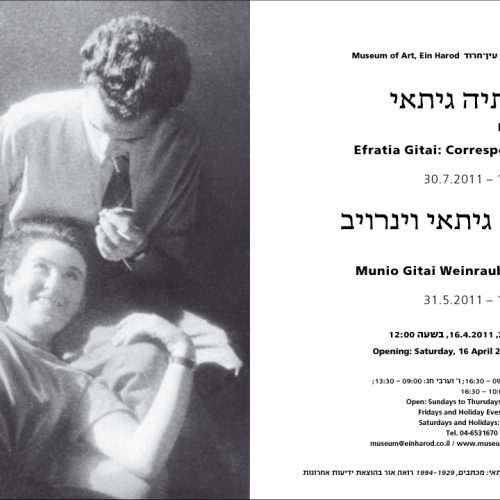Efratia Gitai
Correspondence
Curator: Galia Bar Or
April-July 2011
The installation Efratia Gitai: Letters is motivated by the texts left behind by Efratia, whose letters serve as a point of departure for dialogue with Amos Gitai’s films, and whose personality is refracted in them and is reflected in a number of actresses. The presentation of this installation at Ein Harod charges it with local and generational meaning: in 1926, when she was a student at the Herzlia Gymnasium (high school), Efratia, together with ten of her friends, founded a youth movement called HaChugim, which later evolved into the Machnot HaOlim movement whose members established kibbutzim in the Jezreel, Beit-She’an, and Jordan valleys. With their human power, Efratia’s letters, which are documents of historical and generational testimony, interconnect family, community, national and universal circles, and evoke reflections on identity, transformation and change. Displayed opposite them is the tear-stained face of Natalie Portman in the film “Free Zone” (2005), while in the background can be heard the words of Chava Alberstein’s song “Chad gadya”: “I was once a sheep and a tranquil kid, / Today I’m a tiger and a devouring wolf. / I’ve already been a dove, I’ve been a deer, / Today I don’t know who I am”.
Amos Gitai, Munio Gitai Weinraub: Traces and Efratia Gitai: Letters are interwoven with one another and inter-radiate one another. The subjective dimension pulsates in them directly as a non-apologetic stance, as an artery that connects the dimension of time with the vitality of creation. Generational and inter-generational worlds assemble and open along it, in ongoing discourse with collective and private sediments. The experimental thrust in Gitai’s work breaches boundaries, interrogates the seam between accumulation and transmission, deepens the interspace between defined disciplines and spreads a surface for alternative forms, or, as Jean-Michel Frodon writes in his book on Gitai’s films:
“They are not addtitive or accumulative; they do not create fullness, but rather space – space to be occupied by each of us, without it having to be assigned to us, and without us becoming either lost or oppressed in it. It is space that we wish not only for this region of suffering, but for every person on the planet.”
Galia Bar Or


